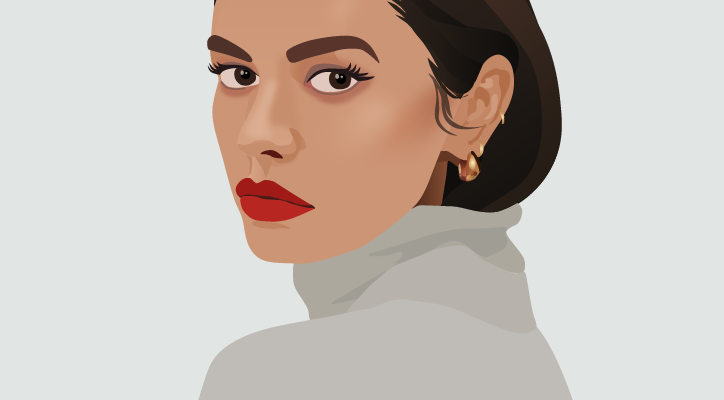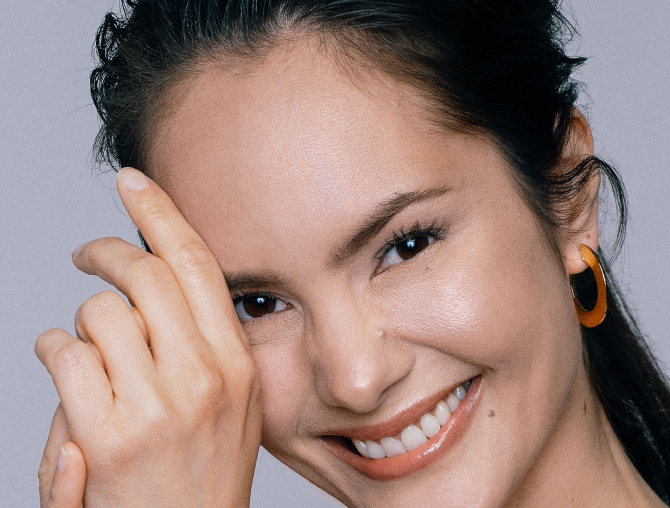We could not be more thrilled to see Ontario’s vaccination numbers continue to increase. As vaccine numbers go up and active COVID-19 case numbers go down, we’re relieved about the prospect of spending time with family, friends and loved ones this summer. We’re proud to see Ontarians being so proactive about vaccines and we’re so grateful to the thousands of healthcare workers (including members of our own staff) who have worked so hard to achieve these milestones. YES!
As we continue the push to get as many people their second doses as soon as possible, we’ve been hearing questions from patients about vaccine timing and their Botox or filler injections and other treatments. Not surprisingly, we’ve also seen trending headlines that have caused some confusion about what can and can’t be done in conjunction with vaccinations, and whether or not the combination can be dangerous.
As always, we’re here to answer any questions you might have and to clear up any misinformation. Because new research and information is always on the horizon, public health policies and recommendations are liable to change and adapt as we learn more. What we lay out here may change in the future, and the policies at our clinic are not necessarily the same as at any other. Don’t hesitate to contact us anytime if you’d like to speak to someone directly about this (or any!) topic.
What’s the Deal with Vaccines and Filler Injections?
This is by and large the biggest question, and with good reason. Very early this year, a number of sensationalized articles were making the rounds about the risk of possible side effects associated with dermal facial fillers and lip fillers after vaccination. Misinformation and misunderstandings created a lot of concern for patients with upcoming appointments and for those who had already undergone injections in the past year. Some patients were even considering delaying their vaccine appointments for the same reasons.
So what are the actual risks involved? There is the potential for a rare side effect to occur that amounts to temporary swelling or inflammation at the site of the filler. However, this kind of swelling is consistent with what we’ve seen in the past with other kinds of vaccines and is something our injectors are familiar with. The condition is not only rare, but also temporary, and these complications have resolved in every reported case, either totally on their own or with physician intervention (using treatments like oral antihistamines or steroids to speed up the process).
These side effects can temporarily cause discomfort and affect the look of your filler—complications that are annoying at most. But if we have the option to prevent you from dealing with that annoyance and discomfort, we’re going to take it. That’s why we recommend a two-week buffer period both before and after your vaccine where you should not schedule an appointment for filler injections. That means four weeks total with your vaccine scheduled right in the middle.
And this is only true for hyaluronic acid-based fillers, which most of our lip and dermal fillers are. That means this advice will also typically apply to treatments like under eye fillers, the non-sugrical or “liquid” facelift, and non-surgical rhinoplasty.
But if you’re interested in another type of filler, like platelet-rich fibrin taken from your own blood, or a stimulatory filler such as Sculptra, you don’t need to be concerned about this waiting period.
Botox and Vaccines Do Not Affect One Another
Lots of patients have also been asking: how should I plan my Botox appointments around my vaccines? The short answer is, however you want.
There are no contraindications for Botox or other neuromodulators (Dysport, Xeomin, Nuceiva) and the COVID-19 vaccine, meaning neither has an effect on the other. The vaccine will not affect or interfere with your result, and Botox will not affect your immune response. You could even have both appointments on the same day if that’s what happens to work best for your schedule.
Microneedling, Beauty Boosters and Vaccinations
For the most part, you can choose to have microneedling treatments at any time relative to your vaccine doses. If you’re choosing one of our favourite new treatments, Morpheus8, which combines radiofrequency energy with deeper microneedling technology, you’re good to go whenever you want. Similarly, if you wanted to undergo a vampire facial (also known as microneedling with platelet-rich plasma) you don’t need to worry about your vaccine timing as the serum injected into the skin is derived from your own blood.
One of our most popular versions of these treatments is microneedling with skin and beauty boosters. These beauty boosters include hyaluronic acid, which draws an impressive amount of hydration to the numerous tiny injections that microneedling delivers. This makes it a powerful treatment, but it’s the same ingredient that fillers contain that has the potential to cause swelling or inflammation as a rare side effect.
If you choose a beauty booster treatment using diluted hyaluronic acid delivered via a V2 gun, or if you have the treatment done with non-diluted HA delivered via a needle, you should similarly wait two weeks before and after your vaccine as a precaution.
Are Other Treatments Affected by Vaccine Timing?
Nope, that’s all of them. You can choose any time to get peel treatments, skin resurfacing treatments, laser treatments, targeted fat reduction treatments, skin tightening treatments—you name it. Just as with Botox, the COVID vaccine has no impact whatsoever on the results of these treatments. You can feel free to book them at your leisure.
Do I Need to Be Vaccinated to Come to the Clinic?
We do not currently require patients to be vaccinated in order to be treated at our clinic. We appreciate the safety and efficacy of the vaccines that have been approved for use in Canada and, as we have seen over the past few months, they have been crucial in protecting more and more people and in preventing the spread of COVID-19. We encourage everyone to get vaccinated as soon as they are eligible. The more of us who are, the better we are able to take care of each other.
Whether or not you’ve had your vaccine, you’ll still be required to follow safety protocols to enter our clinic and have your treatment, which include screening measures and wearing a mask while inside. You can read more about those protective measures here.







